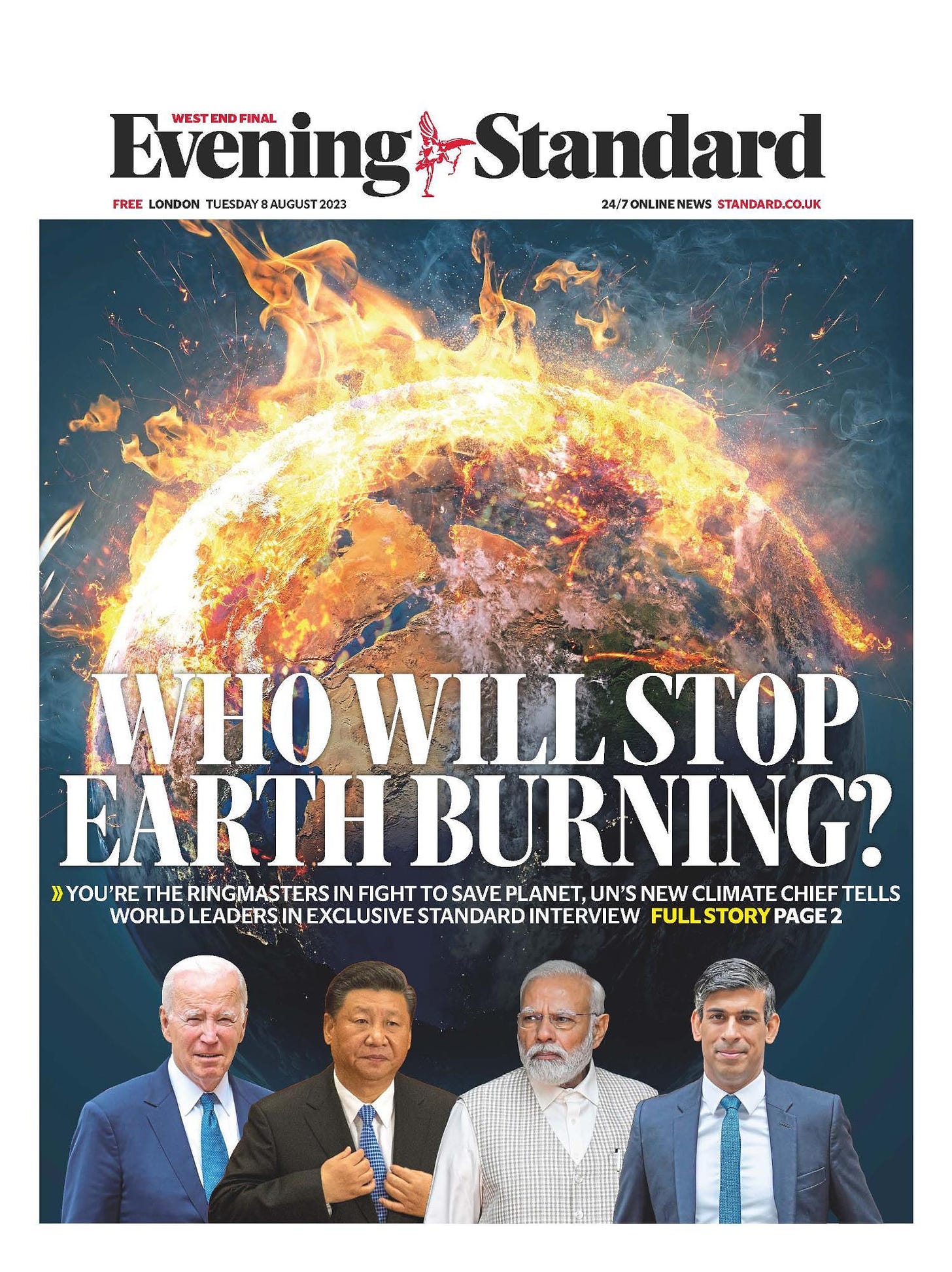The Evening Standard, a free London paper, produced a dramatic front page this evening.
In an exclusive interview, the UN’s new climate chief tells world leaders “you’re the ringmasters in fight to save planet”.
For Britons, the alarm bells of 'global boiling' have translated to merely donning jumpers and wielding umbrellas during what should be the sunnier months of July and August. While parts of the globe have indeed felt the sting of heatwaves, and there are murmurs of sea surface temperatures reaching record highs this year, is this really anthropomorphic climate change? Or could there be other natural factors at play, such as the volcanic eruption in Tonga last year?
A freshly released pre-print study has cast its lens on the long-term impacts of the water vapor anomalies triggered by the eruption of Hunga Tonga-Hunga Ha’apai in January 2022. Volcanic eruptions, with their dramatic release of ash, gases, and lava, have historically captivated scientists. Their profound impact on the environment, climate and human societies is undeniable.
The eruption of the submarine volcano, situated between the islands of Fiji and Tonga, was not just another entry in the annals of geology. The authors sat up, taking note primarily because of the eruption's pronounced influence on stratospheric water vapor levels, an element vital to the equilibrium of global climate.
This eruption defied conventions. Its plumes, in a display of sheer intensity, ascended to altitudes of up to 58 km, venturing beyond the familiar realms of the stratosphere and grazing the lower mesosphere. While many volcanic eruptions are characterized by their release of sulphur dioxide, known to induce global cooling, this eruption charted a different course. It unleashed a significant volume of water vapor directly into the stratosphere, an injection amounting to 5-10% of the stratosphere's typical water vapor content.
Why is this significant? Stratospheric water vapor is a linchpin in the Earth's climate machinery. It possesses the capability to trap heat, potentially warming our planet. Yet, its role is not one-dimensional. Its interactions and influence on atmospheric circulation can also usher in cooling in specific areas. This nuanced balance, and the potential repercussions of tilting it, became the focal point in the aftermath of the eruption.
Post-eruption observations unveiled a curious trend: the Northern Hemisphere, particularly its expansive landmasses, warmed during the winter months. This ran counter to the conventional wisdom that volcanic eruptions predominantly lead to cooling. In a twist, while the Northern Hemisphere basked in warmth, Australia was enveloped in a cooling trend during its winter.
This temperature dichotomy hinted at a labyrinth of factors and interactions shaping the Earth's climate. The eruption's reverberations in the stratosphere influenced atmospheric circulation, altering weather patterns and temperature gradients globally. The role of clouds, with their dual capacity to reflect sunlight and trap heat, further muddied the waters, adding layers of complexity to the climatic response.
As the research net was cast wider, another intriguing facet emerged: a potential nexus between the eruption and anomalies in the tropical Pacific's sea surface temperatures. This vast oceanic expanse, a thermostat for global climate, has its moods swayed by phenomena like El Niño and La Niña. The data, still under scrutiny, hinted at the eruption possibly tweaking the tropical Pacific in ways that either amplified or modulated its climatic effects.
The eruption last year stands as a stark reminder of our planet's dynamic and intricate fabric, where every element is interwoven. The preprint not only tries to explore what has happened this year, in relation to the volcano and the climate, but also suggests it has the potential to influence global climate patterns for decades with various regions experiencing different temperature and precipitation anomalies.





NE - Who will stop Earth Burning? It isn't, but if you got rid of the 4 horsemen of the apocalypse pictured, it would be a good start.
Strange how the news of the volcanos impacts aren’t featuring on the BBC etc!!! Wonder why that could be????!!!! Maybe...
is it because it isn’t man made climate doom friendly news??!!!!